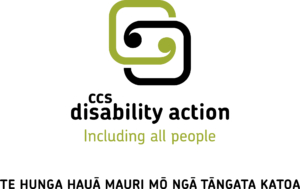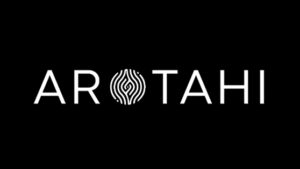
What is your Charity called, where are you based and what sort of things are you involved in?
CCS Disability Action is the largest disability support and advocacy organisation in New Zealand, supporting people with impairments of any type. Our vision is that every disabled person/whānau hauā is interwoven into the lives of their whānau and community.
We were founded in 1935, in response to the polio epidemics impacting Kiwi children. Today, we provide direct support to around 5,000 children, young people, and adults. We tailor our support to individuals – supporting disabled people to increase the control and choice they have in their lives. We work in communities across the motu, even the remote ones, through our 17 branches from Northland to Invercargill.
We also run services, such as our free Library and Information Service, and the Mobility Parking Permit scheme which helps over 170,000 people to access their communities more easily.
As well as responding to the needs of today, we advocate for lasting change in society. Our subsidiaries, Lifemark and BarrierFree,
advocate for and provide universal design consultancy to improve the accessibility of New Zealand’s housing and built environments. We also lobby and advocate for local and national policies that ensure disabled people’s rights are upheld.
What gives you hope for the future?
Perceptions towards disability and disabled people have shifted considerably since CCS Disability Action was founded almost 90 years ago. We have come from a place where disabled people were routinely hidden away and segregated. Today, society has become more accepting of difference and diversity over time – this gives us hope for the future.
Disabled people are increasingly seen as leaders in their own lives and valued for the contribution they can bring to our families, communities, and society.
Models of thinking, such as the social model of disability, show us that disability is caused by the barriers in our physical and social environments, not by impairments. Removing these barriers creates equity and gives disabled people more independence, choice, and control in their lives.
This means that we do not have to wait for others to make New Zealand a more inclusive and equitable place. We can all play a role in creating a New Zealand where every disabled person/whānau hauā is interwoven into the lives of their whānau and community.
This opportunity to make an impact is empowering and exciting.
We are also motivated by making a difference in people’s lives. If you’re interested in learning more about our impact, you can read some of the stories of the people we support here: www.ccsDisabilityAction.org.nz/stories
Biggest challenges and any advice for others setting up or running a charity?
Creating sustainable revenue streams as a charity is an ongoing challenge. Particularly ensuring you can weather major policy, economic or environmental shifts without impacting the quality of support you offer.
Being able to demonstrate your need and impact to a wide range of stakeholders is key.
CCS Disability Action is fortunate to have established strong working relationships with a wide range of funders including the giving public, philanthropic, government and some commercial sources.
You can learn more about our strategic priorities here: www.ccsDisabilityAction.org.nz/strategic-priorities
Got any asks or ways you are looking for collaboration with others?
CCS Disability Action works in partnership with many companies and organisations in our mahi as the largest disability support and advocacy organisation in Aotearoa, New Zealand.
We would love to hear from you if you’re interested in learning more about any of the following professional services:
- Disability Awareness Training
- Accessibility advice in the commercial or built environment.
- Accessible housing development
Please contract training.national@ccsDisabilityAction.org.nz
You can find out more about partnering with us to make an impact at: www.ccsDisabilityAction.org.nz/corporate-support
How was it working with us when setting up or getting legal advice?
We have recently been privileged to work with Steven Moe at Parry Field Lawyers as we work through the changes required by the new Incorporated Societies Act.
This provided CCS Disability Action with an opportunity to assess whether our governance arrangements and legal structure are still set up in the best way possible to meet our needs, and whether there are improvements that can be made.
In addition to working to assess our current legal structure and provide us with a range of options to consider, Steven worked to understand our vision and values. This allowed us to form and authentic partnership with Steven, focused on our potential to serve disabled people and families now and into the future. As well as feeling like Steven was committed to using his knowledge to make a positive difference for our organisation, we appreciated his ability to bring legal concepts to life through clear and effective communication. Thank you, Steven and Parry Field Lawyers, for your support.

 What is your Charity called, where are you based and what sort of things are you involved in?
What is your Charity called, where are you based and what sort of things are you involved in?

